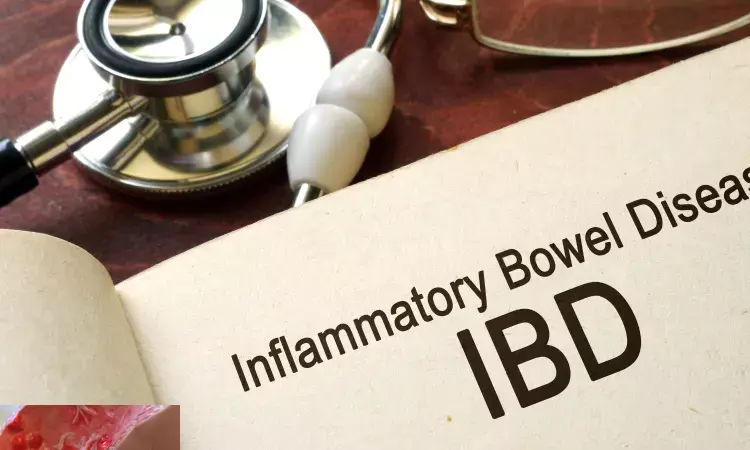- Home
- Medical news & Guidelines
- Anesthesiology
- Cardiology and CTVS
- Critical Care
- Dentistry
- Dermatology
- Diabetes and Endocrinology
- ENT
- Gastroenterology
- Medicine
- Nephrology
- Neurology
- Obstretics-Gynaecology
- Oncology
- Ophthalmology
- Orthopaedics
- Pediatrics-Neonatology
- Psychiatry
- Pulmonology
- Radiology
- Surgery
- Urology
- Laboratory Medicine
- Diet
- Nursing
- Paramedical
- Physiotherapy
- Health news
- Fact Check
- Bone Health Fact Check
- Brain Health Fact Check
- Cancer Related Fact Check
- Child Care Fact Check
- Dental and oral health fact check
- Diabetes and metabolic health fact check
- Diet and Nutrition Fact Check
- Eye and ENT Care Fact Check
- Fitness fact check
- Gut health fact check
- Heart health fact check
- Kidney health fact check
- Medical education fact check
- Men's health fact check
- Respiratory fact check
- Skin and hair care fact check
- Vaccine and Immunization fact check
- Women's health fact check
- AYUSH
- State News
- Andaman and Nicobar Islands
- Andhra Pradesh
- Arunachal Pradesh
- Assam
- Bihar
- Chandigarh
- Chattisgarh
- Dadra and Nagar Haveli
- Daman and Diu
- Delhi
- Goa
- Gujarat
- Haryana
- Himachal Pradesh
- Jammu & Kashmir
- Jharkhand
- Karnataka
- Kerala
- Ladakh
- Lakshadweep
- Madhya Pradesh
- Maharashtra
- Manipur
- Meghalaya
- Mizoram
- Nagaland
- Odisha
- Puducherry
- Punjab
- Rajasthan
- Sikkim
- Tamil Nadu
- Telangana
- Tripura
- Uttar Pradesh
- Uttrakhand
- West Bengal
- Medical Education
- Industry
Sarcopenia in IBD patients associated with worse outcomes

USA: A review article published in Alimentary Pharmacology & Therapeutics entitled "Putting some muscle into sarcopenia-the pathogenesis, assessment and clinical impact of muscle loss in patients with inflammatory bowel disease” written by author Stephanie L. Gold and the team has concluded that the routine assessment of muscle health is essential in all IBD patients.
Nearly 50% of patients with inflammatory bowel disease or IBD are affected by Sarcopenia. This condition is characterized by loss of skeletal muscle mass or function.
The prevalence of Sarcopenia in IBD patients is high. It is associated with poor clinical outcomes. This condition has an increased risk of hospitalizations, surgery and post-operative complications. Concerning here is the routine evaluation of muscles which is done only by a few patients.
Based on this background, researchers reviewed the sarcopenia mechanism in IBD patients. They understood novel modalities to assess and treat impaired muscle mass or function using the database from Pubmed and Cochrane.
The study results include the following points:
- IBD pathogenesis may be related to malabsorption, reduced protein intake, chronic inflammation, dysbiosis, reduced physical activity, medication effects and hormone signalling from visceral adiposity.
- Direct measurements on cross-sectional imaging are the traditional techniques used to assess Sarcopenia.
- New bedside tools are now available to estimate muscle mass with grip strength, mid- upper- arm circumference, and body composition utilizing bioelectrical impedance analysis.
- Making evaluation more streamlined, novel biomarkers for assessing muscle mass and techniques utilizing point-of-care ultrasound are also proposed.
Concluding further, they said that based on our review and findings, we highlight the consideration that Sarcopenia is tied to poor clinical outcomes independent of IBD activity.
Clinically IBD patients must be assessed routinely for muscle health.
Future studies must elucidate the pathophysiology, and effective therapeutic options to reduce complications.
Further reading:
Review article: Putting some muscle into Sarcopenia—the pathogenesis, assessment and clinical impact of muscle loss in patients with inflammatory bowel disease. https://doi.org/10.1111/apt.17498
BDS, MDS in Periodontics and Implantology
Dr. Aditi Yadav is a BDS, MDS in Periodontics and Implantology. She has a clinical experience of 5 years as a laser dental surgeon. She also has a Diploma in clinical research and pharmacovigilance and is a Certified data scientist. She is currently working as a content developer in e-health services. Dr. Yadav has a keen interest in Medical Journalism and is actively involved in Medical Research writing.
Dr Kamal Kant Kohli-MBBS, DTCD- a chest specialist with more than 30 years of practice and a flair for writing clinical articles, Dr Kamal Kant Kohli joined Medical Dialogues as a Chief Editor of Medical News. Besides writing articles, as an editor, he proofreads and verifies all the medical content published on Medical Dialogues including those coming from journals, studies,medical conferences,guidelines etc. Email: drkohli@medicaldialogues.in. Contact no. 011-43720751


